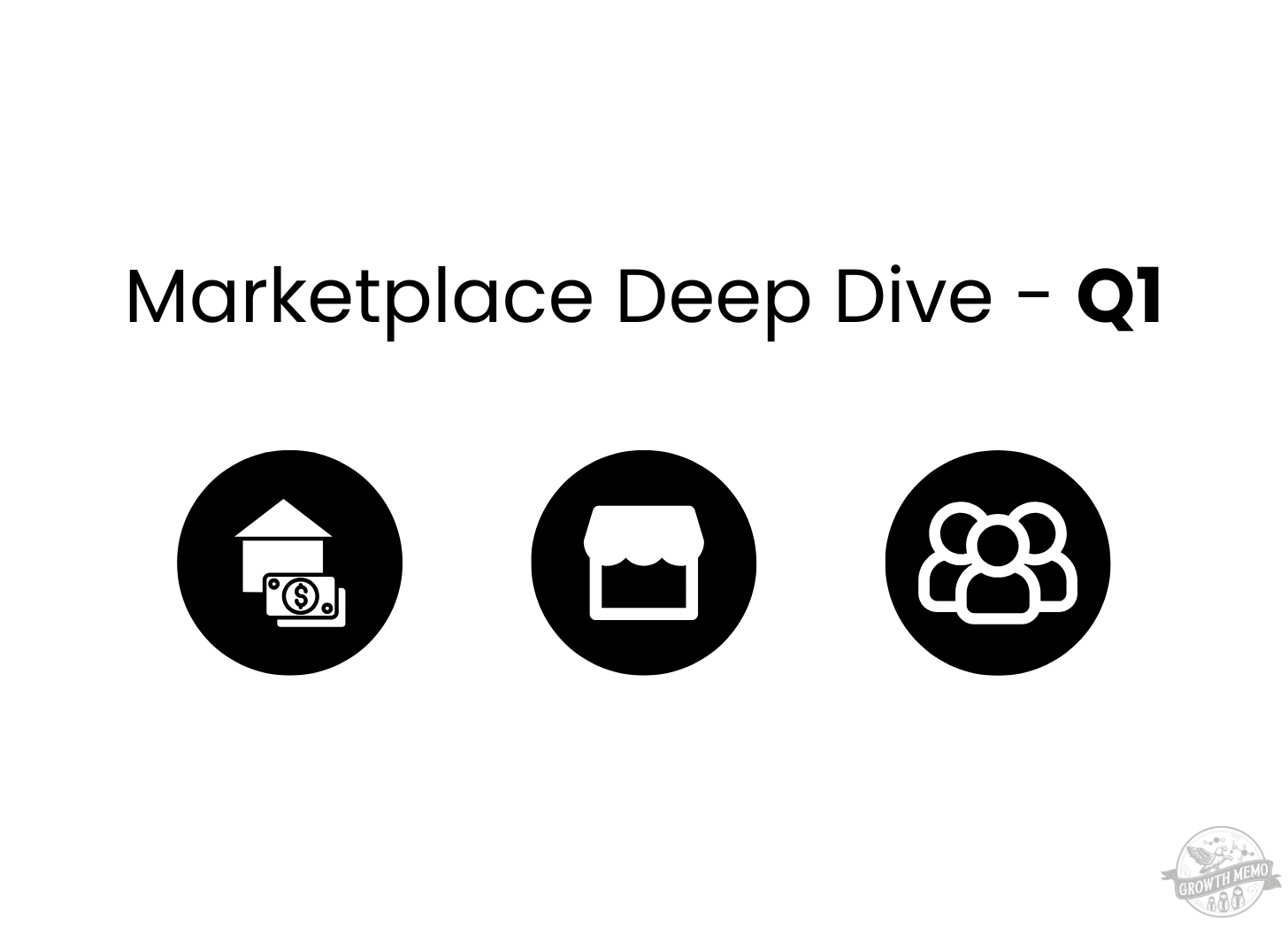Marketplace Deep Dive - Q1 (Case Study: Zillow)
Exclusive insights into Zillow's SEO strategy + large analysis of marketplace data
Welcome to the first deep dive into marketplaces - one of the most exciting business models for SEO!
Besides the market and trends you should know, I’m covering:
How Getty Images eventually beat the competition with a clever SEO play
Why Twitter → X migration was successful (not because of SEO)
Why Chegg & Co are getting crushed by AI
What’s going on with software review sites
I also have a juicy Deep Dive into Zillow at the end, based on a conversation I had with Matt Bowers, who was there for 8 years and defined Zillow’s SEO Strategy.
Key takeaways:
Technical SEO is paramount at scale: Marketplaces deal with massive amounts of content. Crawl efficiency, internal linking, page quality optimization, and rich snippets are not just good practices; they're essential for visibility, as Zillow's story illustrates.
Content strategy needs to be dynamic and vast: Getty Images' success shows how a large inventory allows for creative content expansion and targeting trending topics. Marketplaces should explore diverse content formats and topics to capture a wider audience.
User experience directly impacts SEO: "Good" clicks matter. Zillow's map improvement demonstrates how UX enhancements translate into better SEO performance.
Brand awareness supports SEO: While organic traffic is vital, Zillow's investment in TV and paid advertising shows the importance of brand building as a buffer against algorithm changes.
Monitor and adapt to algorithm changes: The rise of social networks and the decline of some review sites demonstrate how algorithm updates can drastically shift traffic.
What are marketplaces?
Marketplaces are two or three-sided platforms that connect different parties, for example tutors with students or renters with landlords. What makes marketplaces unique and worth their own category is their unique approach to SEO. I call them SEO Aggregators.
The approach to Aggregator SEO is heavy on the technical and product side. You usually deal with hundreds of thousands - if not millions - of pages and need to optimize for page quality, crawl efficiency, internal linking, rich snippets, and product experience.
I brought a selection of consumer and B2B marketplaces to give you an idea of what we’re talking about:
Consumer marketplaces
Social networks: Nextdoor, Meta properties, Snap, Reddit, Youtube, TikTok, Linkedin, Pinterest, Twitter, etc.
Consumer apps: UBER (eats), Yelp, Spotify, Soundcloud, Eventbrite, Coinbase, Opensea, Thumbtack
Travel: OTAs (Expedia, Booking), review sites (Tripadvisor, Viator), attraction aggregators, etc.
Real estate: Zillow, Apartments.com, Redfin, Homes.com, Realtor.com, Trulia, Movoto, etc.
Jobs: Indeed, ZipRecruiter, Simply Hired, Glassdoor
Stock photo sites: Getty Images, Shutterstock, Adobe stock, Alamy, etc.
Tutoring/learning/courses: CourseHero (link to deep dive), Studocu, Brainly, Chegg, Coursera, Udemy
App stores: Apple app store, Play store, Amazon app store, Galaxy Store
Content platforms: Medium, Substack, etc.
B2B marketplaces
Review sites: Trustpilot, G2, Capterra, etc.
App store data: Sensor Tower
Freelance marketplaces: Upwork, Fiverr, Toptal, Intelycare
Industrial & Manufacturing: Xometry, Equipment Share
Logistics: Flexport, Convoy
Notice how most marketplaces serve end consumers as opposed to businesses.
I intentionally exclude retail marketplaces because I cover them in e-commerce deep dives (read the latest).
Industry overview
Marketplaces grew by 8% in total traffic over the last 12 months after a flat 2023. The two drivers of growth are social networks (Threads, Pinterest, Reddit, TikTok) and Crypto (Coinbase, Kraken). Jobs, software reviews, lyrics and real estate sites are struggling.





